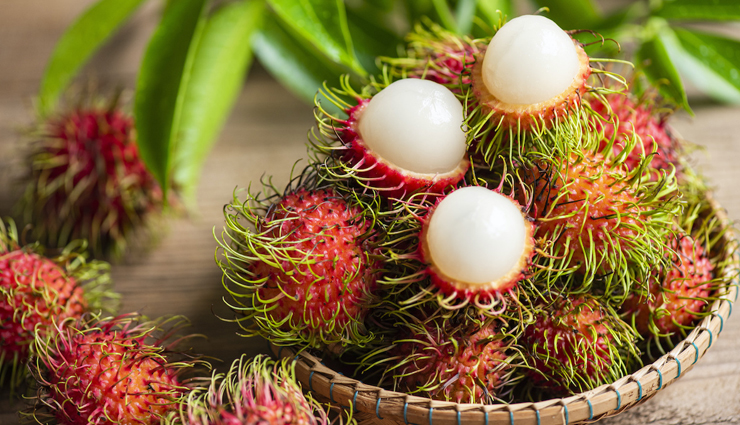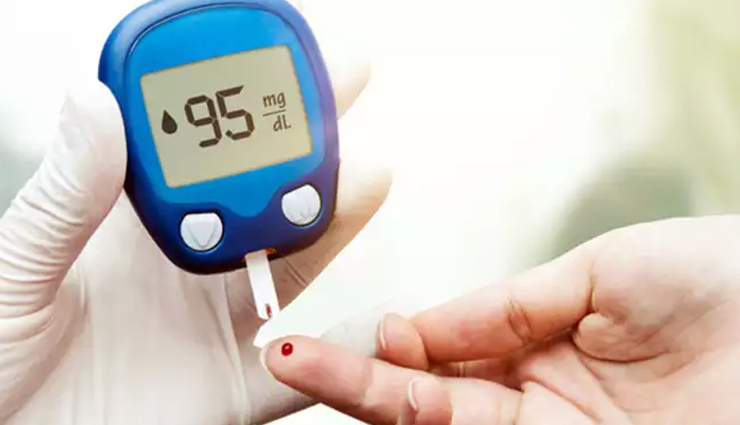- Home›
- Healthy Living›
- 6 Least Known Health Benefits Of Rambutan
6 Least Known Health Benefits Of Rambutan
By: Priyanka Maheshwari Sun, 24 Dec 2023 4:27:44

Originating from Indonesia and Malaysia, the rambutan is an exceptional fruit not to be overlooked. Adorned with brown, leathery skin and adorned with soft, red spines, its white, translucent flesh offers a taste and texture reminiscent of its cousin, the lychee. Whether enjoyed alone or incorporated into various culinary creations like smoothies, ice cream, cocktails, meat accompaniments, pies, or tropical curries, the versatility of rambutan shines. However, beyond its delectable flavor, it's the multitude of health benefits that truly captivate nutritionists. Delve into the following comprehensive list to discover the array of health advantages this fruit offers.

# Aids Weight Loss
If you’ve been trying to lose weight, rambutan can be a delicious addition to your everyday meals. A 100 grams serving of this fruit only sets you back by 75 calories while providing 1.3–2 grams of fiber. And fiber has been found to keep you fuller for longer, in turn preventing overeating. In fact, the soluble fiber in rambutan can dissolve in water and form a gel-like substance in your gut, which helps slow down digestion as well as the absorption of nutrients. This can also lead to reduced appetite and promote weight loss in the long run. Moreover, rambutans pack in a good amount of water, which may further aid weight loss and keep you hydrated.

# Promotes Digestion
Consuming rambutans regularly can keep your digestion in check. About half of its fiber content is insoluble, which helps it pass through your gut undigested. This adds bulk to your stool and helps it move quickly through the intestines, in turn reducing the likelihood of constipation. The other half of the fiber is soluble, which feeds the “good” bacteria in the gut. This bacteria, in turn, produce short-chain fatty acids such as acetate, propionate, and butyrate which reduce inflammation and relieve the symptoms of gut disorders like irritable bowel syndrome, Crohn’s disease, and ulcerative colitis.

# Boosts Immune Function
Adding rambutan to your diet can help you keep the sniffles away when the weather turns. It is rich in vitamin C, with just 5–6 rambutan fruit meeting a whopping 50% of your daily vitamin C needs. This vitamin has been found to boost the production of white blood cells that the body needs to fight off an infection. Studies have found that getting too little vitamin C in your diet can weaken your immune system and leave you more prone to infections. In addition to this, rambutan peel has been used for centuries as a medicine to fight off infections. And studies have found that this peel contains compounds that protect against bacterial and viral infections. That said, although some people eat the peel, it is important to note that it is considered inedible.

# May Improve Skin Health
Adding rambutan to your diet can amp up the benefits of your skincare routine. The vitamin C in the fruit has been found to support collagen production. It is also rich in vitamin C, a nutrient that helps your body absorb dietary iron more easily. This vitamin also acts as an antioxidant, protecting your body’s cells against damage. Keeping up with vitamin C intake has also been found to protect against skin damage caused due to UV rays. In turn, it can help stave off sun spots, discoloration, and uneven skin tone, along with the effects of aging such as wrinkles and tired-looking skin.

# May Manage Blood Sugar Levels
Diabetics, people at risk of diabetes, or people just trying to manage their blood sugar levels can benefit from adding rambutan in their diet. Research supports that the peel of rambutan may increase insulin sensitivity. It has also been found to reduce insulin resistance and fasting blood sugar levels. That said, as we’d mentioned earlier, the peel is considered inedible and further research is needed to fully understand if the fruit yields the same benefits.

# May Protect Heart Health
A couple of rambutans a day could keep heart disease at bay. One animal study found that the extract of the rambutan peel reduced total cholesterol and triglyceride levels in diabetic mice. In addition to this, 100 grams of rambutan offers mg of copper, which makes up for 20% of the recommended daily intake. And copper has been found to play a major role in the proper growth and maintenance of various cells, including those of your heart. Besides this, it offers smaller amounts of heart-healthy nutrients like manganese, phosphorous, potassium, magnesium, iron, and zinc.





